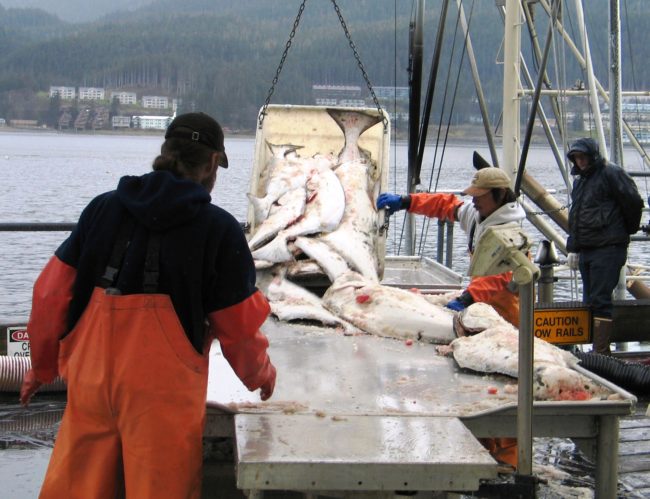
The North Pacific Fishery Management Council voted Sunday evening to lower caps on halibut bycatch in the Bering Sea by 21 percent.
Bering Sea halibut fishermen say the cut isn’t big enough to save their communities.
The vote came after impassioned public testimony stretching over three days. Halibut biomass has declined over the past decade, and fishermen in communities like St. Paul, in the Pribilof Islands, face the possibility of being shut down entirely. They hoped that reducing bycatch would make more halibut available to fish.
Councilmember Duncan Fields said the final vote didn’t go nearly far enough.
“I acknowledge on a personal basis my identity with the folks living in Western Alaska,” he said, choking up. “And their loss of economic opportunity, personal identity, and cultural legacy. I get it.”
Alaska Fish & Game Commissioner Sam Cotten originally proposed a larger cut, of about 29-percent. He called it “the bare minimum” to protect Bering Sea fishermen.
But the Council adopted a smaller cut proposed by Bill Tweit of Washington State. Tweit said anything larger would be too steep for industry to absorb.
The numbers are tricky: While the final vote reduces the cap by about 21-percent, the affected fleets have been well under their caps in recent years. So the new cap is actually slightly higher than the total amount of bycatch taken last year.
But the cut varies among different groups. Big flatfish trawlers, who are responsible for most of the bycatch, will take the biggest cut. They must reduce the amount of halibut they catch by about 15-percent from last year’s numbers.
Chris Woodley is director of the Groundfish Forum, which represents many of those trawlers. He said that’s a big hit.
“We’re extremely concerned about job loss in our fishery right now, about tying up vessels,” he said. “We need to sit down and assess the extent that this is going to damage our sector.”
The cut passed 6 to 3. Two Alaska members were forced to recuse themselves, in a controversial ruling by the National Oceanic and Atmospheric Administration.
